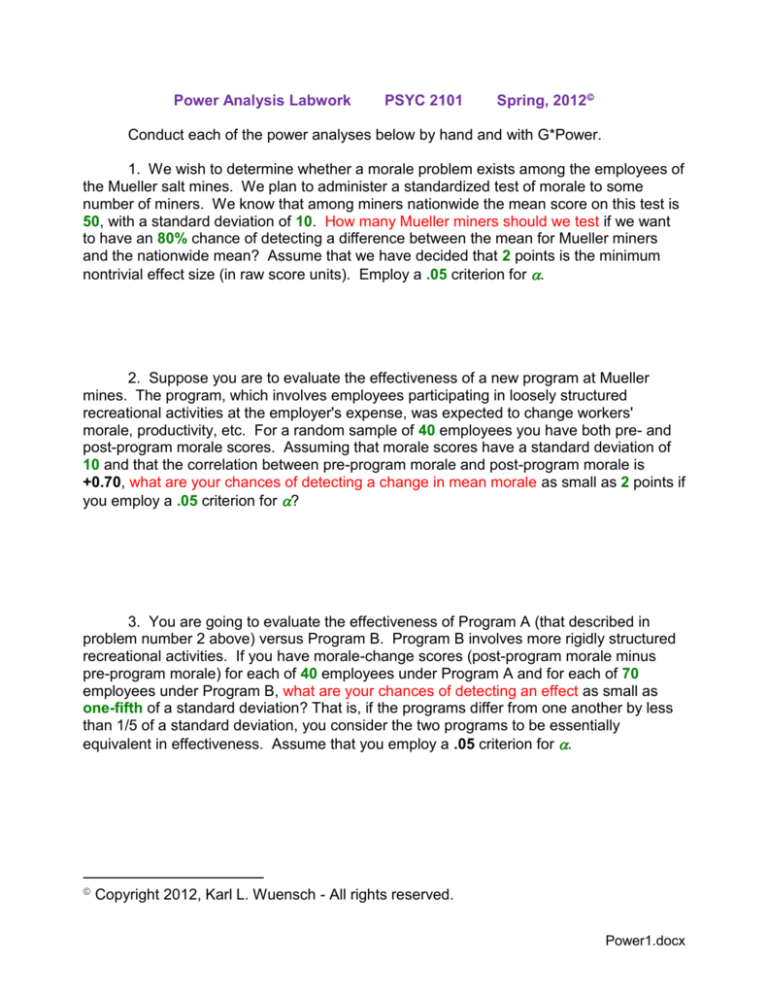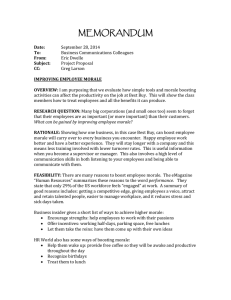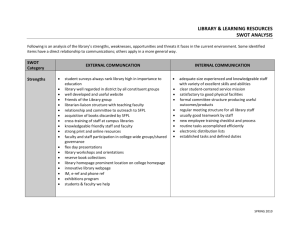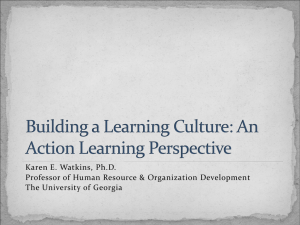
Power Analysis Labwork
PSYC 2101
Spring, 2012
Conduct each of the power analyses below by hand and with G*Power.
1. We wish to determine whether a morale problem exists among the employees of
the Mueller salt mines. We plan to administer a standardized test of morale to some
number of miners. We know that among miners nationwide the mean score on this test is
50, with a standard deviation of 10. How many Mueller miners should we test if we want
to have an 80% chance of detecting a difference between the mean for Mueller miners
and the nationwide mean? Assume that we have decided that 2 points is the minimum
nontrivial effect size (in raw score units). Employ a .05 criterion for .
2. Suppose you are to evaluate the effectiveness of a new program at Mueller
mines. The program, which involves employees participating in loosely structured
recreational activities at the employer's expense, was expected to change workers'
morale, productivity, etc. For a random sample of 40 employees you have both pre- and
post-program morale scores. Assuming that morale scores have a standard deviation of
10 and that the correlation between pre-program morale and post-program morale is
+0.70, what are your chances of detecting a change in mean morale as small as 2 points if
you employ a .05 criterion for ?
3. You are going to evaluate the effectiveness of Program A (that described in
problem number 2 above) versus Program B. Program B involves more rigidly structured
recreational activities. If you have morale-change scores (post-program morale minus
pre-program morale) for each of 40 employees under Program A and for each of 70
employees under Program B, what are your chances of detecting an effect as small as
one-fifth of a standard deviation? That is, if the programs differ from one another by less
than 1/5 of a standard deviation, you consider the two programs to be essentially
equivalent in effectiveness. Assume that you employ a .05 criterion for .
Copyright 2012, Karl L. Wuensch - All rights reserved.
Power1.docx












